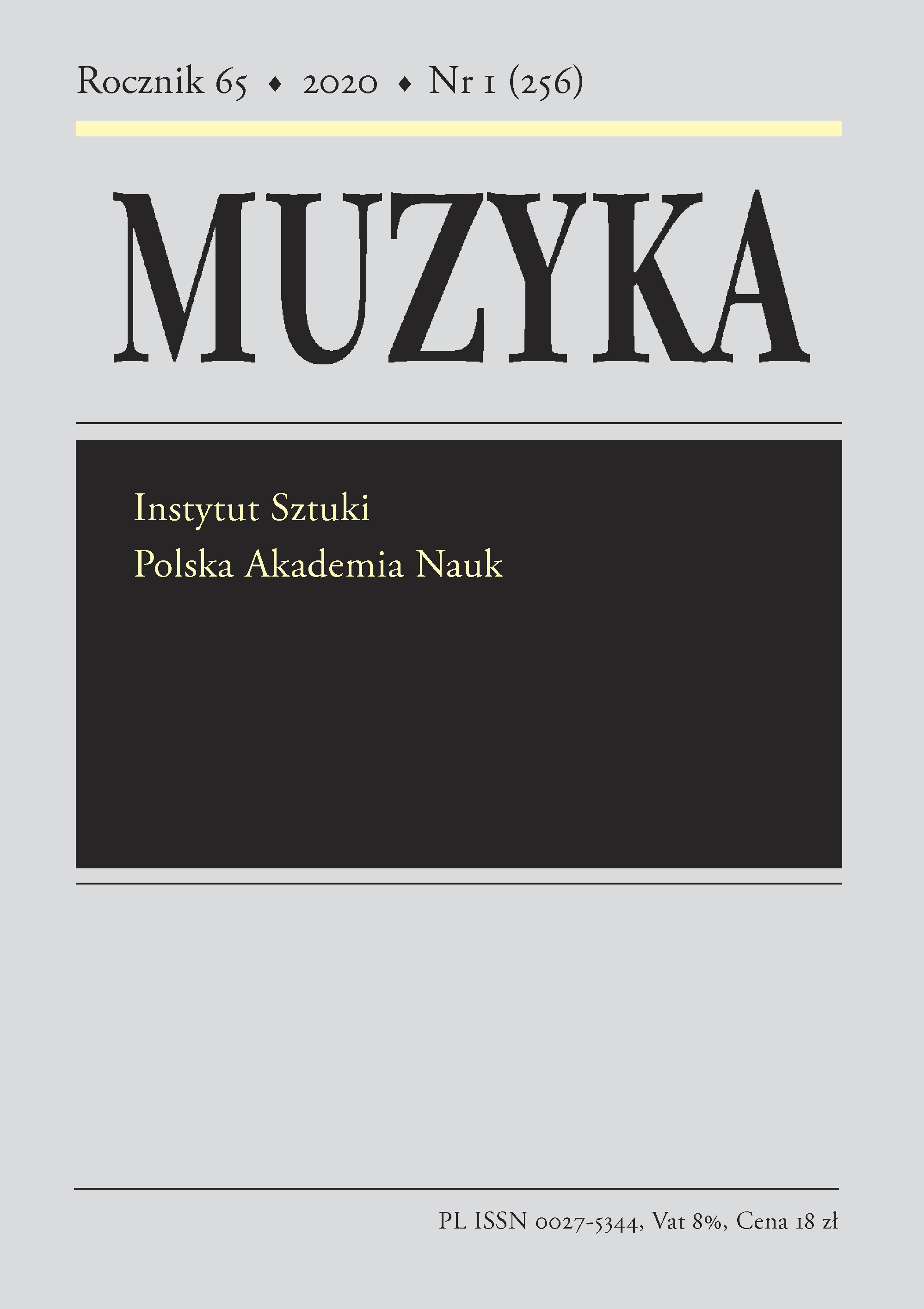Odpis hymnu Nurakina „O ty! Co równie znędzniałym” z melodramatu "Iskahar, król Guaxary" Józefa Elsnera odnaleziony w zbiorach Biblioteki Jagiellońskiej
A copy of Nurakin’s hymn ‘O Thou! Just as miserable’ from the melodrama 'Iskahar, King of Guaxara' by Józef Elsner, discovered at the Jagiellonian Library in Kraków
Author(s): Michał JagoszSubject(s): Music
Published by: Instytut Sztuki Polskiej Akademii Nauk
Keywords: beginnings of Polish opera; Iskahar, King of Guaxara; melodrama; Józef Elsner; Wojciech Bogusławski;Jagiellonian Library
Summary/Abstract: Having arrived in Lwów (now Lviv) in 1792, Józef Elsner began to collaborate with the librettist Wojciech Bogusławski. The first Polish-language stage work for which Elsner wrote music was the melodrama 'Iskahar, King of Guaxara', which was performed more than ten times, making it one of the most popular works then shown at the Lwów theatre. Bogusławski himself praised Elsner’s music and all the aspects of this work. Nurakin’s hymn (aria) from Act III, also known as the ‘song to the sun’, is said to have become particularly popular and was sung throughout Galicia. Iskahar also enjoyed popularity in Warsaw, and Nurakin’s aria was known far and wide. Despite the great popularity of this music around the turn of the nineteenth century, no surviving music sources are known except for the recently discovered copy of this single song. The preserved manuscript is bound together with other materials in a volume kept at the Jagiellonian Library in Kraków (most likely part of Jan Oberbek’s donation to this library). The collection also contains other numbers from stage works popular during that period. This copy was probably made from a print of the hymn published under Elsner’s own imprint in his own music press in 1802/1803. Comparing the various known records of the aria’s verbal text, we can conclude that the copy was made before 1823, when the libretto was printed in volume 7 of Bogusławski’s 'Dzieła Dramatyczne' [Dramatic works], in a version diverging from the Lwów original. Researchers claim that Iskahar is important to the study of Polish music history, particularly with regard to stage works. Zbigniew Raszewski and Jerzy Got emphasise the political import of the libretto and the artistic value of the impressive stage design. The work is also distinguished by the role it played in Józef Elsner’s career. From that time on, he began to compose works of melodrama, a new genre on the Polish theatrical scene. He also consistently wrote music to Polish texts.
Journal: Muzyka
- Issue Year: 65/2020
- Issue No: 1
- Page Range: 119-125
- Page Count: 7
- Language: Polish

